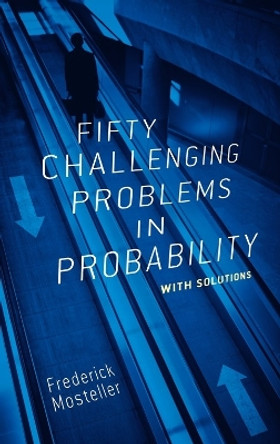Description
This book employs a careful, rigorous, yet lively approach to the timely question of whether we can justly generalize about members of a group on the basis of statistical tendencies of that group. For instance, should a military academy exclude women because, on average, women are more sensitive to hazing than men? Should airlines force all pilots to retire at age sixty, even though most pilots at that age have excellent vision? Can all pit bulls be banned because of the aggressive characteristics of the breed? And, most controversially, should government and law enforcement use racial and ethnic profiling as a tool to fight crime and terrorism?
Frederick Schauer strives to analyze and resolve these prickly questions. When the law "thinks like an actuary"-makes decisions about groups based on averages-the public benefit can be enormous. On the other hand, profiling and stereotyping may lead to injustice. And many stereotypes are self-fulfilling, while others are simply spurious. How, then, can we decide which stereotypes are accurate, which are distortions, which can be applied fairly, and which will result in unfair stigmatization?
These decisions must rely not only on statistical and empirical accuracy, but also on morality. Even statistically sound generalizations may sometimes have to yield to the demands of justice. But broad judgments are not always or even usually immoral, and we should not always dismiss them because of an instinctive aversion to stereotypes. As Schauer argues, there is good profiling and bad profiling. If we can effectively determine which is which, we stand to gain, not lose, a measure of justice.
This book is a joy to read. Schauer makes an important argument with real brio, and uses wonderful examples. The book is a ringing and, I believe, wholly successful attack on those who are suspicious of generalizations and who therefore call for ever-greater 'individualized,' highly contextual decision-making. -- Sanford Levinson, University of Texas, Austin Schauer argues convincingly that generalizations are pervasive in judgment, among other things connecting the subject of generalizations to reliance on probabilistic data in civil trials. He does an excellent job of showing why many generalizations create no problem of injustice (including some that are claimed to be unjust) and of explaining why a limited number of nonspurious generalizations might nevertheless be thought unjust and should be avoided. -- Kent Greenawalt, Columbia University With admirable clarity and fair-mindedness, Frederick Schauer tackles timely issues of racial profiling, minimum voting and drinking ages, mandatory retirement, military exclusions based on gender and sexual orientation, and sentencing guidelines. He demonstrates that nothing less than social justice and stability is at stake in our ability to distinguish between different kinds of legal generalities. Profiles, Probabilities, and Stereotypes is full of intriguing examples and illuminating arguments, which together will make it a most welcome guide for concerned lawmakers and citizens alike. -- Amy Gutmann, author of Identity in Democracy If you've asked yourself whether it is fair to single out ethnic groups for profiling at airports, whether it's right to retire pilots just because they turn 60, or whether it's ever fair to bar women from certain professions, Frederick Schauer's book will be essential reading. It is a profound and incisive guide to the contested zone of public policy where justice, fairness, and equality conflict. -- Michael Ignatieff, Carr Professor of Human Rights Policy, Kennedy School of Government, Harvard University, author of The Lessor Evil
About the Author
Frederick Schauer is the David and Mary Harrison Distinguished Professor of Law at the University of Virginia and the author of Free Speech: A Philosophical Enquiry; Playing by the Rules; Profiles, Probabilities, and Stereotypes; Thinking Like a Lawyer; and The Force of Law. He is a Fellow of the British Academy and of the American Academy of Arts and Sciences, was the Frank Stanton Professor of the First Amendment at Harvard University for twenty years, and was a founding editor of the journal Legal Theory.
Reviews
This book is a joy to read. Schauer makes an important argument with real brio, and uses wonderful examples. The book is a ringing and, I believe, wholly successful attack on those who are suspicious of generalizations and who therefore call for ever-greater 'individualized,' highly contextual decision-making. -- Sanford Levinson, University of Texas, Austin
Schauer argues convincingly that generalizations are pervasive in judgment, among other things connecting the subject of generalizations to reliance on probabilistic data in civil trials. He does an excellent job of showing why many generalizations create no problem of injustice (including some that are claimed to be unjust) and of explaining why a limited number of nonspurious generalizations might nevertheless be thought unjust and should be avoided. -- Kent Greenawalt, Columbia University
With admirable clarity and fair-mindedness, Frederick Schauer tackles timely issues of racial profiling, minimum voting and drinking ages, mandatory retirement, military exclusions based on gender and sexual orientation, and sentencing guidelines. He demonstrates that nothing less than social justice and stability is at stake in our ability to distinguish between different kinds of legal generalities. Profiles, Probabilities, and Stereotypes is full of intriguing examples and illuminating arguments, which together will make it a most welcome guide for concerned lawmakers and citizens alike. -- Amy Gutmann, author of Identity in Democracy
If you've asked yourself whether it is fair to single out ethnic groups for profiling at airports, whether it's right to retire pilots just because they turn 60, or whether it's ever fair to bar women from certain professions, Frederick Schauer's book will be essential reading. It is a profound and incisive guide to the contested zone of public policy where justice, fairness, and equality conflict. -- Michael Ignatieff, Carr Professor of Human Rights Policy, Kennedy School of Government, Harvard University, author of The Lessor Evil
Rather than indulge recriminations about racism or simple-minded nostrums about public safety, Schauer has shown that a society ruled by laws needs to make generalizations and, yes, create profiles. -- Eli Lehrer * Weekly Standard *
As Frederick Schauer argues in his excellent book, though we are right to suspect that all general rules are discriminatory, we are wrong to suppose that it is therefore better to trust individuals. This is because no individual is truly capable of judging each case on its merits; individuals simply bring their own personal generalisations to bear on the case in question...Schauer suggests that we should all toughen up about stereotyping, accept it as an inevitable fact of life, and instead of trying to avoid it, concentrate on coming up with the best stereotypes we can. -- David Runciman * London Review of Books *
In an era in which profiling, stereotyping, and generalizing are suspect Frederick Schauer's Profiles, Probabilities, and Stereotypes is a frank, in-depth look at the justifications for such practices. Schauer takes an unpopular stance in supporting the use of generalization over particularization, opening the reader's eyes to the fact that society operates on multiple levels by the widespread use of generalization Schauer addresses the intriguing question of why we find some generalizations acceptable and others morally outrageous Schauer skillfully develops his thesis that the outcomes of applying general rules are often preferable to those that would result from applying a rule's rationale individually in each case. Profiles, Probabilities, and Stereotypes faces controversial issues with aplomb and will capture any reader interested in how fairness, equality, morality, stability, and community are interrelated. -- Melanie Kilpatrick * Federal Lawyer *
Awards
Nominated for David Easton Award 2004 and Society for the Study of Social Problems C. Wright Mills Award 2003.
Book Information
ISBN 9780674021181
Author Frederick Schauer
Format Paperback
Page Count 384
Imprint The Belknap Press
Publisher Harvard University Press
Dimensions(mm) 202mm * 129mm * 22mm









